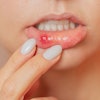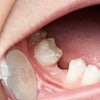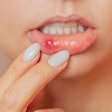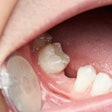
Sugar may be bad for teeth, but the low-calorie sweetener sorbitol, especially when it's combined with antibiotics and a high-fat diet, has its own downsides. The animal study recently was published in Cell.
Not only can sorbitol, which is often found in sugar-free gum and candy, alter gut bacteria, causing bloating, cramps, and diarrhea, but combining it with antibiotics and a high-fat diet may reduce microbes that are essential for sorbitol digestion, the authors wrote.
"Here, we show that a history of antibiotic exposure combined with high fat intake triggered long-lasting sorbitol intolerance in mice by reducing Clostridia abundance, which impaired microbial sorbitol catabolism,” wrote the authors, led by Dr. Jee-Yon Lee, PhD, an assistant project scientist in the University of California Davis Health Department of Medical Microbiology and Immunology (Cell, February 15, 2024).
Through metagenomic analysis, researchers pinpointed gut bacteria-harboring genes responsible for sorbitol breakdown. Notably, they focused on the decline of Clostridium following antibiotic treatment in mice. This decline was linked to increased oxygen levels in the gut due to reduced epithelial oxygen consumption, thereby hampering Clostridia growth and sorbitol digestion.
However, introducing Anaerostipes caccae, a bacterium-producing butyrate, regulated oxygen levels. Consequently, this restoration of oxygen levels facilitated the replenishment of Clostridia populations, thereby mitigating sorbitol-induced symptoms in mice, the authors wrote.
The researchers proposed that mesalazine (5-aminosalicylate), a medication commonly prescribed for ulcerative colitis, Crohn's disease, and other inflammatory bowel diseases, could potentially serve as a treatment for sorbitol intolerance in humans, they wrote.
However, the study had limitations. The structural and functional distinctions in the gastrointestinal tracts of mice and humans underscore the constraints of rodent models in fully reflecting human responses, they wrote.
"Collectively, these mechanistic insights identify microbial sorbitol catabolism as a potential target for approaches for the diagnosis, treatment, and prevention of sorbitol intolerance," Lee et al wrote.



















